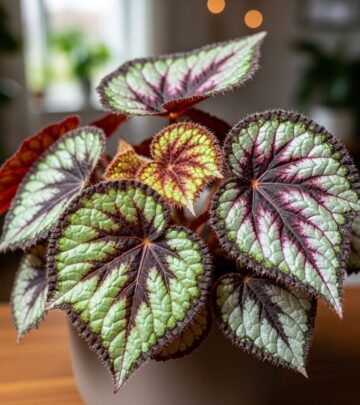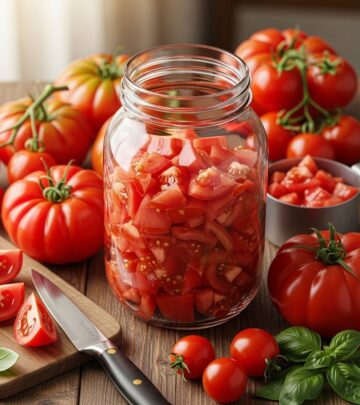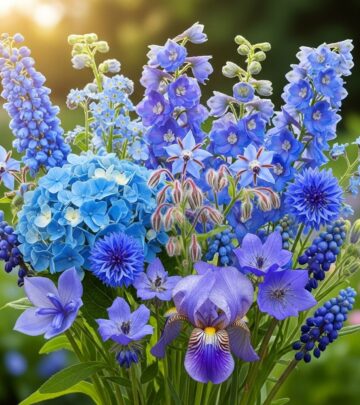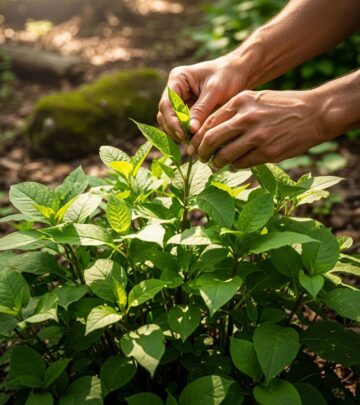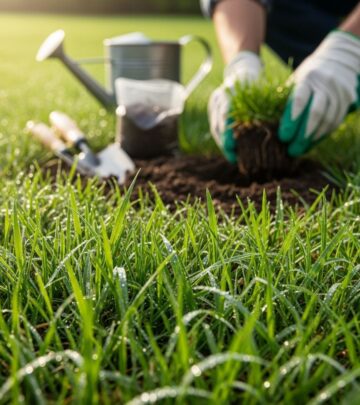Louisville Gardens: Insider’s Guide To Hidden Green Gems
Explore Louisville's lush garden culture, from innovative parks to modern sustainable landscapes and vibrant urban agriculture.
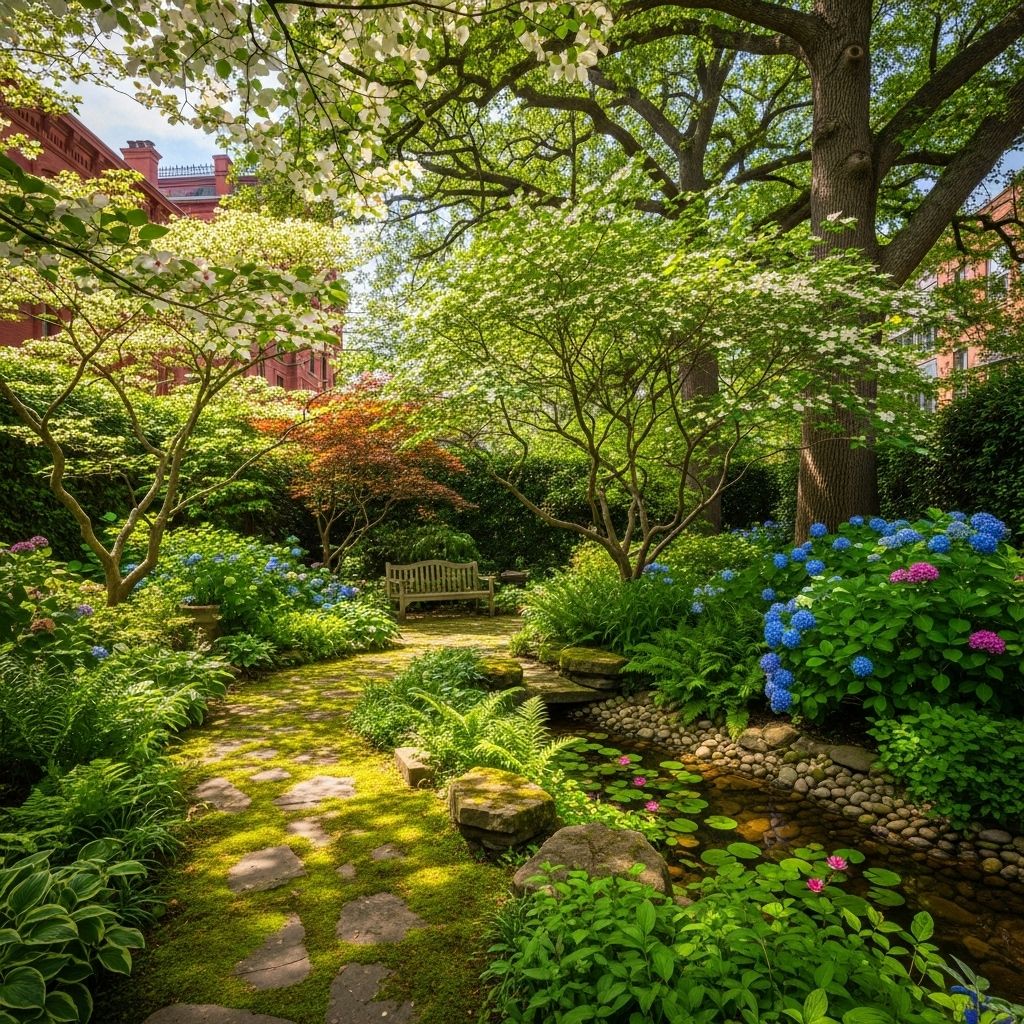
Image: HearthJunction Design Team
Secret Gardens of Louisville: A Modern Green Renaissance
Louisville, Kentucky, is a city where tradition and innovation blend seamlessly, especially when it comes to gardens, parks, and sustainable green spaces. Renowned for its historic charm and modern vibrancy, Louisville has cultivated a thriving garden culture, world-class public parks, architecturally innovative gardens, and a dynamic urban agriculture movement. Whether you’re a dedicated horticulturist, a casual gardener, or simply a lover of beautiful landscapes, Louisville offers an inspiring array of experiences rooted in its unique blend of Southern hospitality and forward-thinking design.
The Pulse of Louisville’s Garden Scene
Louisville’s green landscape is richly layered, offering everything from meticulously designed city parks to edgy, contemporary gardens and a robust community-driven local food movement. Visitors can stroll through historic neighborhoods with secret courtyard gardens, shop at curated garden boutiques, and explore public spaces crafted by some of the most visionary landscape architects. As the city embraces sustainability and urban renewal, its gardens and parks have become both sanctuaries and catalysts for community connection.
Key Features of Louisville’s Garden Culture
- Diverse Garden Styles: From classic formal gardens to cutting-edge green spaces.
- Urban Agriculture Movement: Local initiatives fostering sustainable food systems and community empowerment.
- World-Class Parks: Designed by landscape visionaries and cherished by locals.
- Modern Garden Shops: Boutiques and nurseries offering trends and inspiration for every gardener.
- Sustainability Focus: Transforming former industrial sites into vibrant green community hubs.
Modern Gardens and Innovative Green Spaces
Louisville’s modern garden landscape is as dynamic as the city itself, shaped by bold new ideas that push the boundaries of design and sustainability. These gardens are living laboratories, blending form, function, and ecological stewardship.
Waterfront Botanical Gardens: A Landmark of Renewal
Location: River Road, Louisville
The Waterfront Botanical Gardens stand as a testament to Louisville’s commitment to green innovation. Once a disused landfill, this 23-acre site has been transformed into a lush oasis and a model of sustainable design. With the opening of the Graeser Family Education Center in 2019, the gardens began their phased journey toward becoming a comprehensive horticultural destination.
- Design Vision: Integrates natural site advantages, contemporary landscape architecture, and visitor engagement.
- Sustainability: Advanced water filtration gardens, native prairie installations, and energy-efficient infrastructure set new local standards for environmental stewardship.
- Interactive Learning: Educational spaces for children and adults, gallery exhibits, classes, and playful zones that encourage hands-on exploration.
- Community Engagement: Open forums and workshops foster a sense of shared ownership among Louisville residents.
Thematic Zones and Visitor Experience
- Three Thematic Zones: Each garden zone reflects the unique character of the land, offering different experiences—from orienting ‘spines’ that guide movement, to more wild, exploratory landscapes on the garden’s northern side.
- Endless Possibilities: Each visit is unique, with visitors able to ‘choose their own adventure’ through an array of garden types, event spaces, classrooms, and natural habitats.
Environmental Innovation in Practice
- Water Filtration Garden: Cleans stormwater runoff naturally, blending ecological function with visual beauty.
- Living Building Challenge: Incorporates water and energy collection, blackwater treatment, and interactive education plazas for sustainable systems learning.
- Greenhouses & Education Pavilion: Spaces for public engagement, research, and community classes exposing visitors to both the science and art of horticulture.
Louisville’s Historic Parks: Design Legacy and Contemporary Enjoyment
Louisville’s parks are not only beautiful natural retreats—they’re also living pieces of design history. Many were shaped by Frederick Law Olmsted, the father of American landscape architecture, who left a lasting legacy in the city’s green spaces.
Notable Parks and Features
- Cherokee Park: A winding, naturalistic gem with scenic drives, woodlands, and well-worn trails.
- Iroquois Park: Offers sweeping views from its summit, deep forests, and picturesque meadows.
- Central Park: A neighborhood favorite, hosting outdoor theater, festivals, and tranquil gardens.
- Shawnee Park: Designed for riverfront recreation and community events, with rolling lawns and expansive trees.
Olmsted’s Influence
Olmsted’s vision created a connected network of parks and parkways across Louisville, emphasizing public access, natural beauty, and spaces for healthful recreation. Today, the Olmsted Parks Conservancy and dedicated local partners preserve, restore, and enliven these spaces for future generations.
Urban Agriculture: From Backyard Plots to Citywide Initiatives
Louisville’s urban agriculture movement rivals that of much larger cities, spearheaded by community organizations, public programs, and passionate individual gardeners. The city’s emphasis on local food production is visible in thriving farmers’ markets, neighborhood gardens, and innovative education programs.
Key Urban Agriculture Highlights
- Community Gardens: Vacant lots and underused land have been transformed into productive edible landscapes for residents to grow their own food.
- Educational Outreach: Nonprofits and the University of Kentucky Cooperative Extension Service offer workshops, soil testing, and hands-on programs for all ages.
- Food Security & Sustainability: Urban farming reduces food miles, builds community resilience, and supports local food sovereignty.
- Green Infrastructure: Rain gardens, pollinator plots, and edible landscapes improve urban ecology and foster pollinator health.
Seasonal Gardening and Year-Round Bounty
Louisville’s moderate climate allows for both spring-summer and fall-winter vegetable gardens. Local experts encourage succession planting and the integration of cool-season crops to ensure a steady supply of fresh, homegrown produce. Many gardeners extend the season with cold frames, row covers, and community-supported agriculture (CSA) programs.
Modern Garden Shops and Boutiques
The city’s modern garden shops and nurseries offer curated selections of plants, tools, and outdoor décor, as well as expert advice for gardeners of all skill levels. These shops are more than retail—they’re hubs for inspiration, community events, and design trends.
What Sets Louisville’s Garden Shops Apart?
- Curated Plant Collections: Native species, hard-to-find ornamentals, sustainable landscaping options.
- Workshops & Design Services: From container designs to full landscape plans, many shops offer on-staff design professionals and seasonal classes.
- Garden Art & Furnishings: Unique, locally crafted pottery, furniture, and outdoor accents for personalizing every green space.
- Community Spirit: Many shops host open gardens, tours, and events that connect plant lovers across the metro area.
Planning the Ultimate Garden Tour of Louisville
Whether you’re a first-time visitor or a seasoned local, planning an immersive garden tour is the perfect way to discover Louisville’s green treasures. Here’s how to make the most of your time among the city’s gardens and parks:
- Start at the Waterfront Botanical Gardens: Explore themed gardens, educational exhibits, and stunning overlooks.
- Wander the Olmsted Parks: Follow trails, enjoy picnics, and take in the layered plantings and historic design elements.
- Browse Local Garden Shops: Pick up native plants, artful garden supplies, and expert tips for your own landscape.
- Join a Workshop or Tour: Engage with local experts, attend a gardening class, or participate in a neighborhood plant swap.
- Visit Community Gardens: See urban agriculture in action and connect with local growers at seasonal farmers’ markets.
Table: Louisville Gardens and Green Spaces at a Glance
| Site | Main Features | Design Emphasis | Visitor Experience |
|---|---|---|---|
| Waterfront Botanical Gardens | Sustainable gardens, education center, themed landscapes | Ecological innovation, interactive learning | Guided tours, events, hands-on exhibits |
| Cherokee Park | Woodlands, trails, drives | Naturalistic, Olmsted design | Recreation, scenic walks, cycling |
| Urban Community Gardens | Edible plantings, youth programs | Sustainable food systems | Workshops, volunteering, harvest events |
| Garden Boutiques | Native plants, décor, expert advice | Curated, trendsetting | Classes, pop-up markets, shopping |
Louisville’s Commitment to Sustainability
At the heart of Louisville’s garden culture is a shared commitment to sustainability and environmental stewardship. Whether it’s remediating contaminated land for public good, boosting biodiversity through native plantings, or reducing the city’s ecological footprint via local food systems, Louisville’s garden community is leading by example.
- Soil Remediation: Former brownfield sites, like that of the Waterfront Botanical Gardens, are transformed into safe, productive spaces through innovative soil management and phytoremediation.
- Water Conservation: Rain gardens, permeable paths, and drought-tolerant plantings address stormwater runoff and enhance water quality throughout the city.
- Public-Private Partnerships: Collaboration among city officials, nonprofit organizations, and local businesses fuels green innovation and ensures long-term success.
Frequently Asked Questions (FAQs)
What makes Louisville’s garden scene unique compared to other cities?
Louisville’s combination of historic park design, contemporary sustainable gardens, and a robust urban agriculture movement sets it apart. The city’s gardens are both rooted in tradition and unafraid of innovation.
Can I visit the Waterfront Botanical Gardens year-round?
Yes, the Waterfront Botanical Gardens is open for visitors with regular public events, educational workshops, and seasonal exhibits for all ages.
What are the best times of year to visit Louisville’s gardens and parks?
Spring and fall are especially vibrant, but thanks to the region’s climate and thoughtful planting, there’s something to see in every season, from spring bulbs to autumn foliage.
Where can I learn more about gardening or urban agriculture in Louisville?
Local nurseries, the University of Kentucky Extension Service, and community organizations offer classes, workshops, and resources for gardeners at all levels.
Are there opportunities to volunteer in community gardens or park projects?
Absolutely. Many community gardens, nonprofits, and the Olmsted Parks Conservancy welcome volunteers for planting, maintenance, and educational outreach throughout the year.
Conclusion: Louisville’s Gardens—Where Tradition Meets Tomorrow
From its historic Olmsted parks to bold urban garden projects like the Waterfront Botanical Gardens, Louisville is a city where the past and future of garden design come together in inspiring ways. This rich, green tapestry—supported by dedicated citizens, visionary designers, and passionate growers—ensures that Louisville remains a must-visit destination for anyone who believes in the transformative power of gardens and public green spaces.
References
- https://www.gardendesign.com/kentucky/louisville.html
- https://louisville.edu/cepm/project-areas-1/brownfields-and-safe-soil/english/ky-ext-veg-gardening-in-ky
- https://kentuckylandscapedesign.com/louisville-ky/landscape-design/
- https://perkinswill.com/project/waterfront-botanical-gardens/
- https://www.asla.org/2017awards/323929.html
Read full bio of Anjali Sayee







